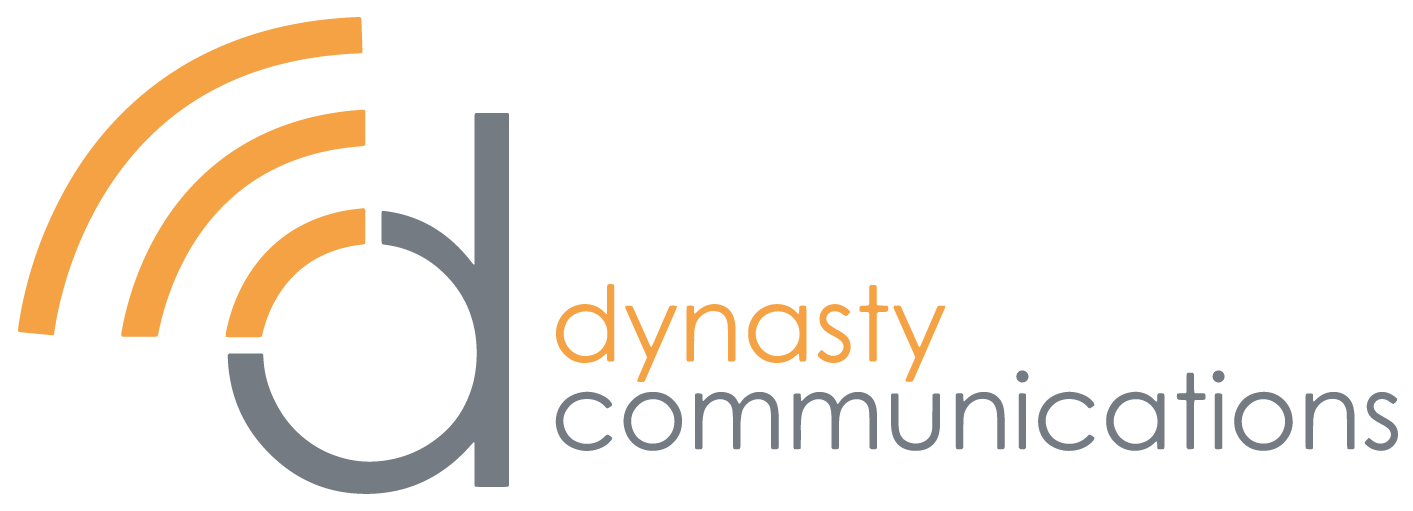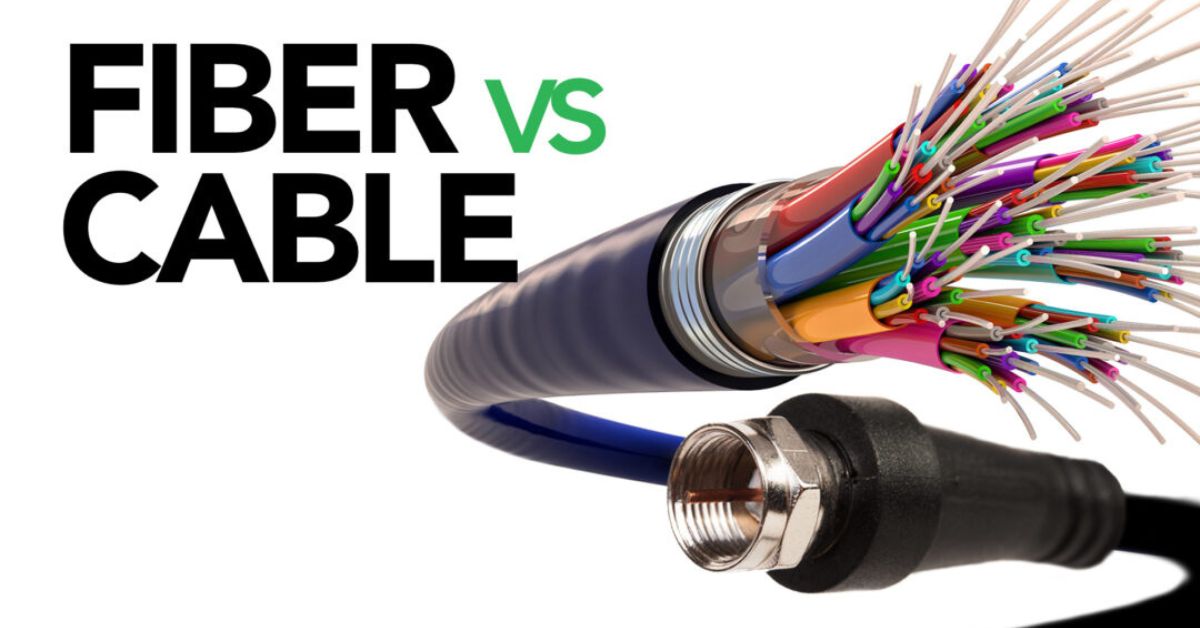Because of the high rates of employment, and the mighty virtual links inter-tied with information communication technology, the need for speedy internet connection in today’s world is very necessary. In the process of trying to match the pace that is needed due to the utility value associated with online activities, selecting the correct type of connection required also turns into one very important decision.
As there are different types of internet services, some popular choices are Fiber and Cable. The benefits they enjoy and speed efficiency, are indicated in the lines below. With this blog post, we aim to understand the major differences between Fiber and Cable Internet that will clarify why one type is better in some situations and not in others.
Look At the Difference Between Fiber and Cable Internet
Understanding Fiber Internet
Fiber Internet technology is the latest one and has been developed recently. However, still, it still enjoys great success in transmitting data in pulses over fibers—thin threads of glass or plastic. This fiber allows data travel at the speed of increased light, passing the abilities of conventional copper-driven connections. Fiber-optic cables provide a much better speed and technology than copper wires due to their features of eliminating signal loss and disturbance in their route while carrying data, promoting efficiency.
Speed: The Crown Jewel of Fiber Internet
While comparing fiber optic vs cable internet speed, fiber Internet reigns supreme. It provides extraordinarily quick download and upload rates, making it ideal for bandwidth-intensive activities like streaming high-definition videos, online gaming, and video conferencing. Fiber Internet allows data to move over fiber-optic cables at the speed of light, so you can wave goodbye to annoying lag periods and buffering.
Low Latency for Seamless Online Experiences
Aside from high raw speeds, the use of Fiber Internet also correlates with a low latency rate as it is the delay in data transmission. Latency of reduced nature is important when speaking of real-time applications like online gaming as well as video conferencing type applications. The fact that fiber allows for increasing the speed and efficiency of data transfer means enhanced usability provided online with minimal delay incidents and few interruptions.
Reliability: A Sturdy Connection
While concerned about fiber optic internet vs cable, fiber Internet is known for its reliability. Unlike traditional cable connections, fiber-optic cables are less susceptible to environmental factors like electrical interference and extreme weather conditions. This makes Fiber Internet a robust choice for areas prone to inclement weather, ensuring a consistent and dependable connection.
Understanding Cable Internet
In contrast, data transmission for cable Internet is dependent on copper coaxial wires. It has been a widely adopted technology for decades and is known for its availability and affordability. Cable Internet is delivered through the same infrastructure as cable television, using a network of cables that connect to your home.
Speed: A Reliable Contender
As we are talking about the fiber optic vs cable internet speed, the Cable Internet may not match the sheer speed of Fiber, but it still offers impressive speeds that cater to the needs of most users. Cable providers continuously upgrade their networks to deliver faster internet speeds, making Cable Internet a reliable choice for households with moderate to high internet usage.
Shared Bandwidth: Potential for Slowdowns
While comparing cable or fiber internet, one notable aspect of Cable Internet is that it operates on a shared bandwidth system. This means that multiple users in the same neighborhood or area may share the same cable line, leading to potential slowdowns during peak usage times. While technological advancements have mitigated this issue to some extent, it’s essential to consider the impact of shared bandwidth on your internet speed.
Latency: Adequate for Everyday Use
Cable Internet generally has higher latency compared to Fiber, but for everyday internet activities like browsing, streaming, and general online tasks, the difference may not be noticeable. However, if you engage in activities that require low latency, such as competitive online gaming, Fiber Internet might be a more suitable option.
Making the Choice: Fiber vs Cable Internet
Now that we’ve explored the strengths of both Fiber and Cable Internet, how do you choose the right option for your needs?
Cable vs Fiber – Consider Your Internet Usage
If your online activities include high-speed and low-latency demands, such as online gaming or streaming content in 4K resolution, Fiber Internet stands out as the superior choice. The remarkable fiber optic vs cable internet speed and minimal latency of Fiber makes it the go-to option for users who prioritize a seamless and responsive online experience. Whether you’re engaged in competitive gaming, hosting video conferences, or indulging in high-definition streaming, Fiber Internet ensures that your internet connection won’t be the bottleneck hindering your enjoyment.
Cable vs Fiber – Budget Constraints
For individuals or households with budget constraints, Cable Internet emerges as a more wallet-friendly alternative to Fiber. While Cable Internet may not reach the same astronomical speeds as Fiber, it still offers impressive bandwidth at a more affordable cost. If your online activities don’t hinge on the absolute fastest speeds, and you’re looking for a reliable connection without breaking the bank, Cable Internet provides a suitable compromise. It caters well to the needs of everyday internet users without sacrificing too much in terms of speed.
Cable vs Fiber – Availability
Despite the growing prevalence of Fiber Internet, its availability may not be ubiquitous across all areas. It’s essential to check with local internet service providers to determine whether Fiber or Cable Internet is accessible in your location. While Fiber is expanding its reach, some regions may still primarily rely on Cable infrastructure. Availability considerations in cable or fiber internet play a crucial role in the decision-making process, as you’ll want to choose an internet connection that’s accessible and reliable in your specific geographical area.
Cable vs Fiber – Future-Proofing
If you’re a forward-thinking individual planning for the long term and seeking a connection that can adapt to future technological advancements, Fiber Internet emerges as the more future-proof option. The rapid pace of technological progress often results in increased bandwidth requirements. Fiber-optic technology, with its potential for extremely high speeds, positions itself as a robust choice for accommodating these future demands.
Wrap Up!
Whether or not one should go for Cable Internet is open to debate; the decision is more of a personal necessity as well as a priority. The fiber optic vs cable internet speed, fiber Internet delivers stunning speed and dependability, making it the top selection for consumers wanting pure line speeds with a guarantee of high returns based on costs. Conversely, the Cable Internet comes as a more affordable, steady plug that meets most demands.
When searching for internet providers Charlotte NC, it’s important to look at options that fit your unique needs and tastes. With technology advancing, the distinction between Fiber and Cable Internet may fade away as they both rely on optic fiber by offering even faster speed at better features.
Regardless of your decision, knowing where particular search engines stand regarding their strengths and weaknesses will help you make a decisive choice that best fits your internet browsing behavior.

